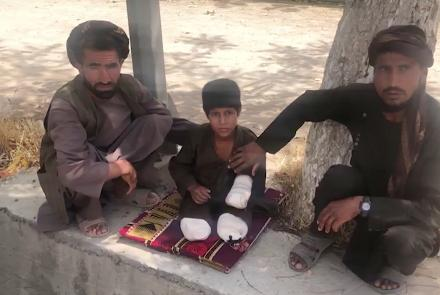Afghanistan: Violence Displaces Over 8,000 Families

Over 8,000 families have been displaced in at least five provinces as fighting intensifies on multiple fronts between government forces and the Taliban, the Ministry of Refugees and Repatriations said on Saturday.
The families are faced with lack of shelter, access to health services, education and other facilities for a normal life, according to the displaced persons.
Baghlan, Helmand, Kunduz, Kandahar and Laghman are the five provinces where the families have been displaced. Heavy clashes are underway in the five provinces over the last few weeks, except for the three days of the ceasefire from May 13 to May 15.
“8,500 families have been displaced. Of the figure, 3,500 families have been displaced due to the fresh spat of violence,” said Sharifullah Shafiq, the head of the refugees and repatriations directorate in Baghlan.
Heavy fighting is underway in three districts of Baghlan for the last two seven days. Taliban on Friday night launched new attacks on the three districts of Baghlan.
Parts of the center of Burka district in Baghlan fell to the Taliban. This led to intense fighting between the government forces and the Taliban.
Sources said that at least 10 security force members and 40 Taliban were either killed or wounded Friday night’s clashes in Baghlan-e-Markazi and Nahrin districts.
“A Taliban’s shadow governor named Qari Amrullah was killed in the war in Guzargah district,” Baghlan governor Mohammad Akbar Barikzai said,
Abdul Ghafar, a resident of Imam Sahib district in Kunduz, said he has left the district with his family due to fighting. His son, he said, lost his limbs in the clashes and is under treatment right now. He added that they need urgent help.
“Fighting has intensified in Imam Sahib. 5,000 families have been displaced. Their homes have been changed into military bases,” said Mohammad Yusuf Ayubi, head of Kunduz Provincial Council.
As well as in the eastern part of the country, hundreds of families have been displaced from their homes.
“The situation is quite tense. We don’t have anything to eat. We have nothing,” said Gul Mohammad, member of a displaced family in Laghman.
“We don’t have shelter. We have a miserable life,” said Noor Mohammad, member of a displaced family in Laghman.
The government has pledged to address the needs of the displaced families.
“We have planned to help our countrymen who have been displaced from their homes. We are working with foreign NGOs to address their needs,” said Sayed Abdul Basit Haidari, a spokesman for the Ministry of Refugees and Repatriation.
